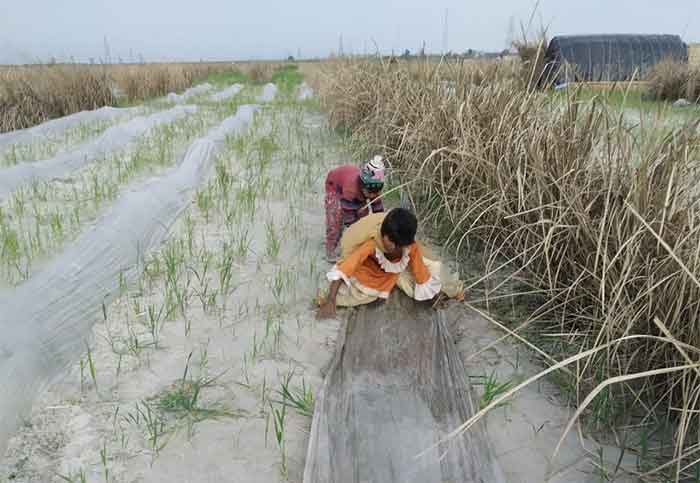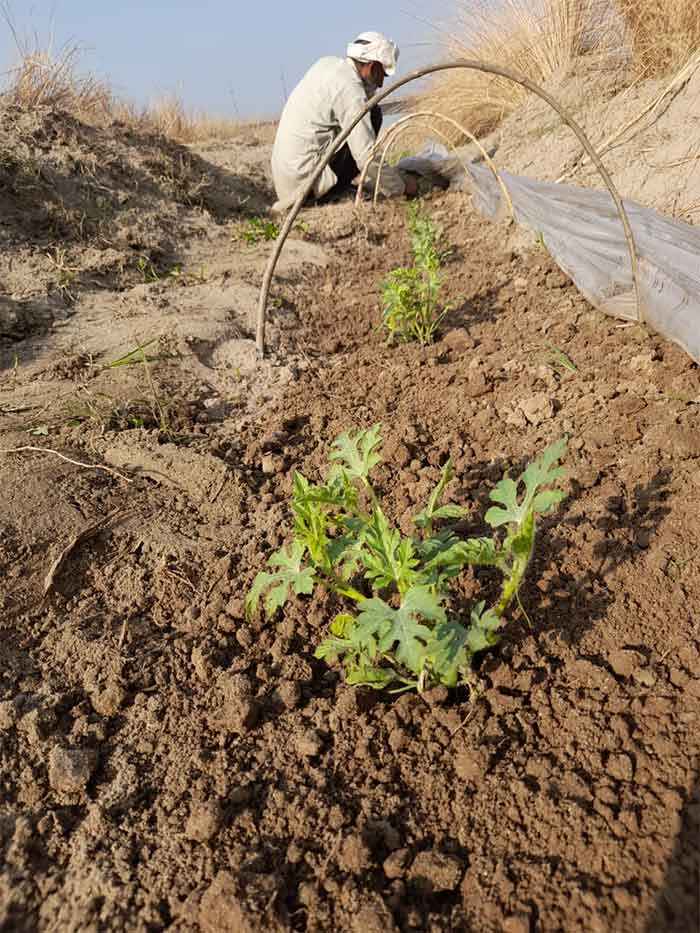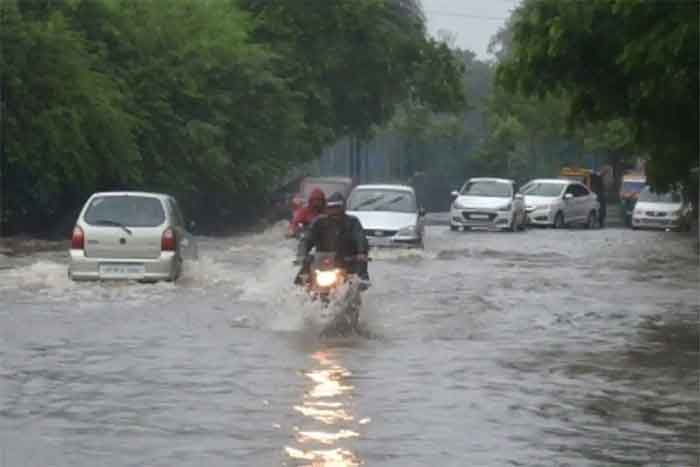
The economy of the impoverished Mallah or boatmen community living in various villages of Shamli district of Uttar Pradesh (UP) received a major jolt during Covid times. Many are stuck in a non-ending cycle of debt or have lost their precious valuables to local lenders.
Majid Mallah of Imrana village told Covid Response Watch, “Covid – 19 shook us completely when markets were closed down and access to public places was denied for long durations. We could neither sell our yield in the markets nor outside in public places. Most of our produce got ruined. Whatever little we could sell, we got one fourth price of that. We were devastated.”
He said many people who had taken loans from the local lenders to build or repair their houses or marry off their children or buy seeds or other inputs for their crops could not return it due to these losses. As a result, they subsequently lost their land, houses or valuables to the lenders.
Rasina Mallah , resident of Mawi Timali village said, “My husband (Ikram) died of a massive heart attack last year as he was under constant stress for not being able to return the loan money of Rs 80,000 to the lender. He incurred a lot of losses in farming in the last two years.”
She said that the lender seized her eight bigha land, without seeking her consent or informing her. She, for being illiterate, was also not aware about the documentation involved “I am at a loss to understand how I will bring up my two small girls without land and any back up support,” she cried.
People of the Mallah or boatmen community consider themselves akin to fish which is not possible without water. Much before Covid, when other modes of transportation came into being and made life more convenient for people, the livelihood of boatmen who would take passengers from one end of the river to another dropped drastically. Barring places like Varanasi, where boatmen still make good money due to religious tourism based on boating on the holy Ganges river, in the rest of Uttar Pradesh the community was pauperized.
Salim Mallah, resident of Nagla Rai village said, “We can’t live without river water. That is how our community has been surviving for many generations. If boating ceased for us, we took to cultivation in flood plain areas of rivers and grew fruits or veggies like watermelon, muskmelon, cucumber etc.”
The community lives near the water for most part of the year except three months of monsoon, as the river water swells up during that period.
“We move from one river to another across the country and wherever local people allow us to cultivate land in lieu of some money, we live there for nine months with our families in makeshift huts, “he said.
Typically, the community people leave their homes (in Shamli district) in the month of October-November. By December, they create pits in the flood plain and fill it up with manure, followed by planting of saplings. By June, they harvest and start selling the produce in the markets, directly on carts or in public places of the nearby cities. All this was going on smoothly until Covid turned their lives upside down early 2020 onwards.
 Subsequent Covid invasions and the restrictions imposed by the governments broke their backs further. “We are barely able to make ends meet. These last three years have been extremely tough for us. Our children who don’t go to the schools have started working from the age of five “said Javed Mallah, resident of Balheda village.
Subsequent Covid invasions and the restrictions imposed by the governments broke their backs further. “We are barely able to make ends meet. These last three years have been extremely tough for us. Our children who don’t go to the schools have started working from the age of five “said Javed Mallah, resident of Balheda village.
He further added, “no matter what, our people will die struggling with poverty but won’t take their own lives as we consider ourselves brave, the descendants of soldiers who fought battles for the motherland in history. And we would also not beg to guard our self respect.”
Mustaqueem Mallah, president of Mallah Ekta Seva Samiti and member of the district Ganga Committee in Shamli told Covid Response Watch, “We have urged the government to bail us out of our misery by making good use of our strengths. Our children are good swimmers, as they grow up living near the rivers. If promoted and helped, they can do wonders in national and international swimming championships.”
“Similarly, our youngsters can be recruited for boating wherever required in prominent lakes, rivers or water bodies by the tourism department. Our folks can also be employed in the fisheries sector as well as permanently hired to clean the rivers.” These few measures, he believed, would go a long way in alleviating poverty of the community people.
It is not only an economic downturn but the community also witnessed several deaths of their people due to Covid. Salim Mallah of Kheda village told Covid Response Watch “Our families lived near the rivers when lockdown was imposed in 2020 and, Covid was at its peak. Many in our community people died for want of health facilities. We could not detect the cause and follow treatment for want of RTPCR tests. Poor people leave everything on the Almighty and embrace death silently. “
According to Mustaqueem due to lack of education and ignorance, the community people prefer to trust superstitions and rumors and not science. For example, they are not accepting vaccination to ward off Covid infection.

“Community people largely believe in the propaganda started by vested interests that vaccination camps in Muslim dominated areas is aimed at rendering them impotent by the government machinery,” he said.
However, in order to avail the Covid relief provided by the state government one member of each family is getting vaccinated to obtain ration for the whole family.
The absence of vaccination is making the community more vulnerable to Covid infection.
District Magistrate Jasjit Kaur said, “We are running mass media campaigns and also taking help of local leaders and religious heads to convince local Muslim people to take Covid vaccination to save their lives.”
She said that the district administration would take strict action against those found to be spreading rumors among people.
Seema Sharma is a Chandigarh based freelance journalist who writes about the environment, climate change, human rights and gender issues. She tweets at seema_ env












































